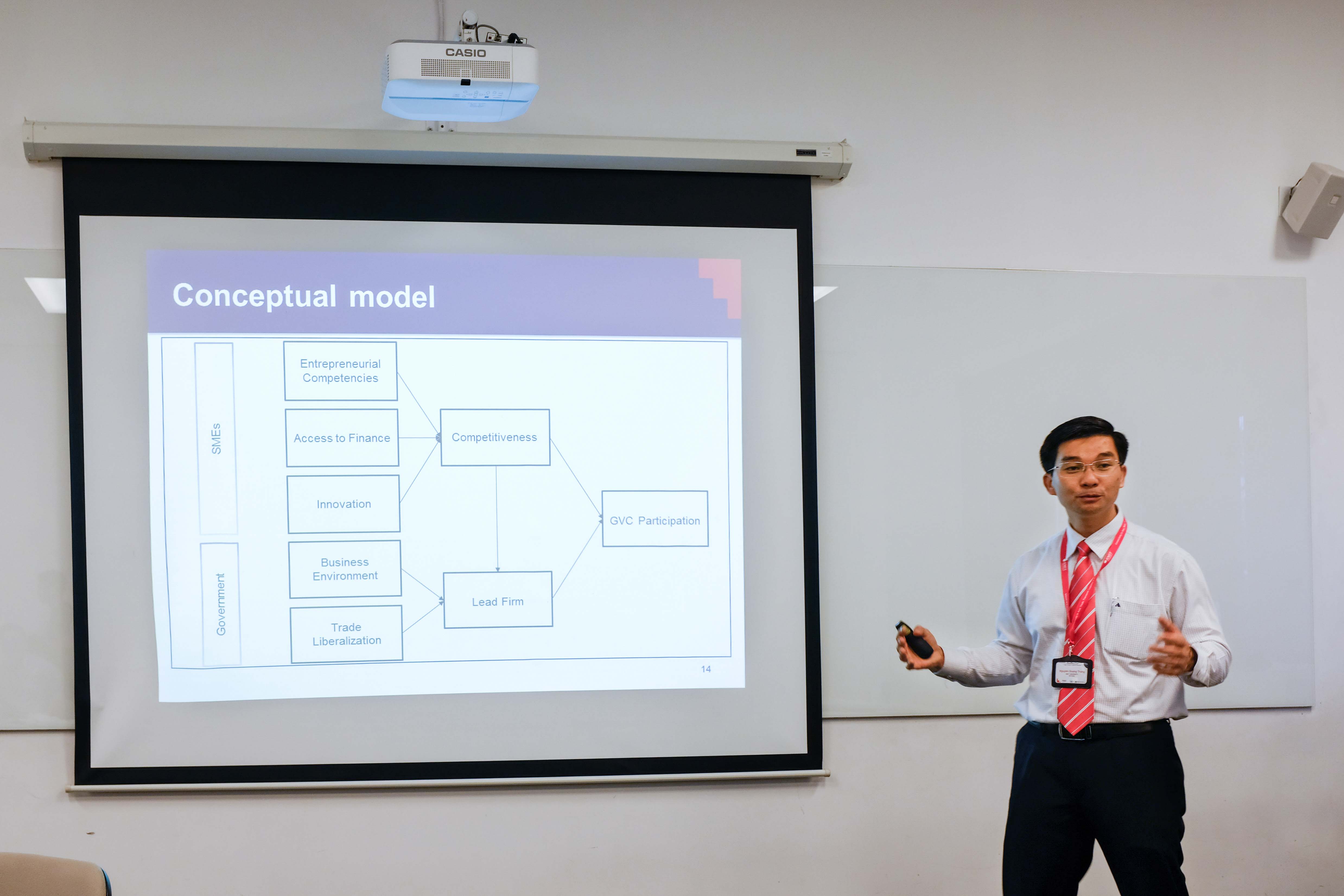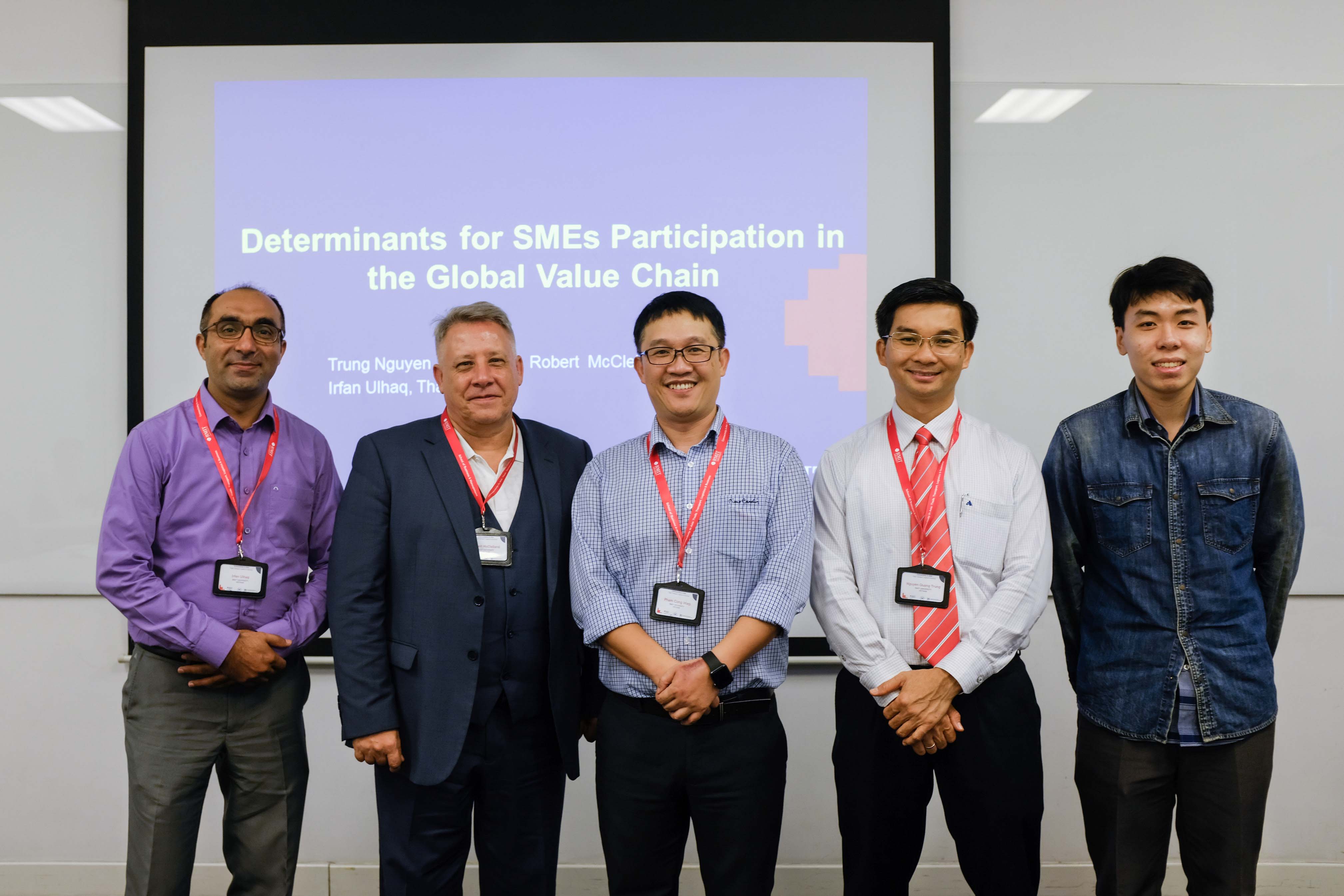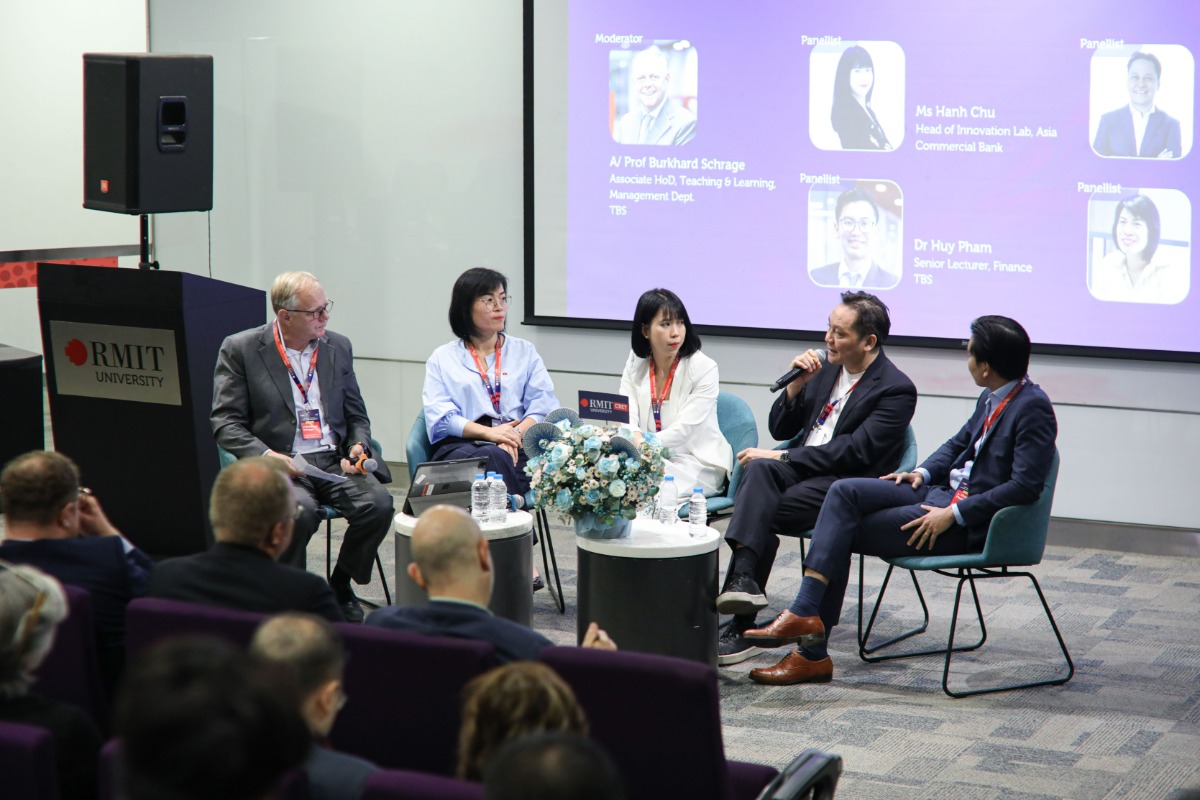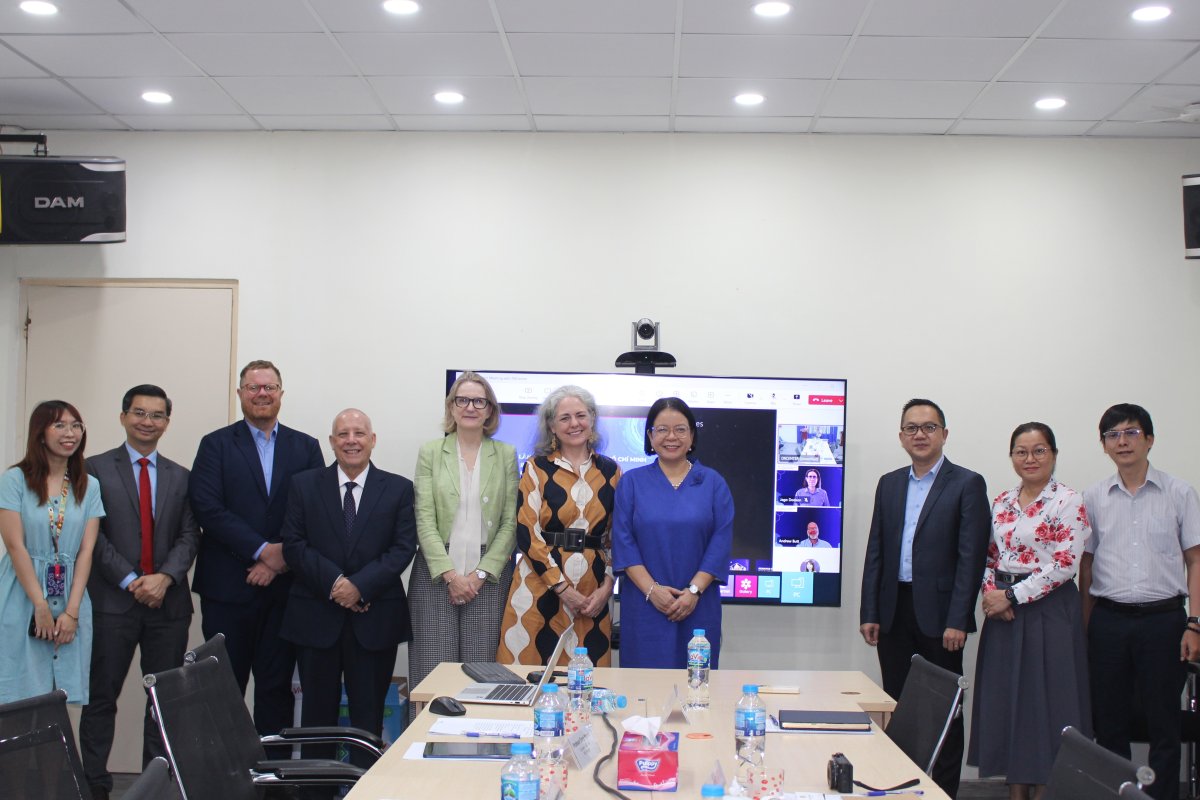Dr Trung said that although SMEs represent the majority of businesses in the world and play a huge role in national economic development – representing more than 95 per cent of private enterprises in Asia – they are still underdeveloped and can’t participate equally in the GVC in many parts of the world.
“The value chain is a full range of activities which are required to bring a product or service from conception through the intermediary phases of production to delivery to final consumers and final disposal after use,” Dr Trung explained.
“The GVC refers to cross-border value chains, comprising countries, a region or a global network. It is usually controlled by powerful, multi-national companies which sell the final product, called lead firms.
These firms are supported by a small number of preferred first-tier suppliers, which are also supported by other suppliers, and so on, forming a tiered structure. The lower the tier, the less value-added it produces and the more easily replaceable it becomes.”
Dr Trung emphasised that the challenge for small firms is not only to join the value chain, but also to “move up” in the structure.
“[In this paper] we are looking at the determinants of SME participation in the GVC, as well as how Vietnamese SMEs can better participate in it,” he said.
Dr Trung added that despite successfully attracting foreign direct investment (FDI) enterprises to its economy, Vietnam has failed to ensure that this investment flow is deep-rooted and organically connected to local businesses.
“An inability to reap benefits from the positive spillover effects from multinational companies can hurt Vietnam’s economy in the long run,” Dr Trung said.
The research team identified three stakeholders (Local enterprises, government and lead firms) and four groups of determinants for SMEs to take part in the GVC, including firm-specific factors, institutional factors, business environment and lead firm strategy, and assessed these factors in the case of Vietnam.
“For local enterprises, critical factors include entrepreneurial competencies, access to finance and innovation capacity,” Dr Trung said. “Vietnam’s innovation capability is above the average.”
“According to the Global Innovation Index 2017, Vietnam hits the top spot among the lower-middle-income economies featured in the top 50,” he said.
“Within ASEAN, the country ranks third, behind Singapore and Malaysia, boasting the best score in education expenditure and performing well in ICT (information and communication technologies) use, gross capital formation and FDI (foreign direct investment) net inflows,” he said.
Regarding entrepreneurial competencies, Dr Trung said: “Overall, Vietnamese SME owners are getting better-educated, yet still lack professional experience. And although there are visible shortcomings in access to credit landscape in Vietnam, the government seems to be aware of the problems and is finding appropriate measures. ”
“From the government side, trade policy and logistics infrastructure are known to significantly contribute to GVC participation from SMEs. Despite the great potential they have, both SMEs and the government need to overcome several challenges to increase GVC participation by SMEs.”






